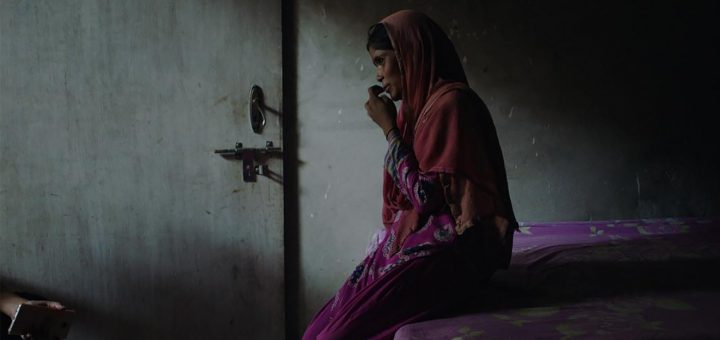Oscar-winning documentary, Period. End of Sentence., opens up the dialogue for period poverty in India

By Karina Zapata, Arts Editor
We have all heard stories of women in developing countries whose lives are turned upside down the minute they get their periods. But the Oscar-winning short documentary, Period. End of Sentence., brings that reality to life.
The film directed by Rayka Zehtabchi and produced by Melissa Berton demonstrates the difficulty of menstruation in Hapur, India. Period. End of Sentence. showcases how debilitating and life-altering periods can be for women in countries with very little resources during menstruation.
Often, in developing countries, women don’t have access to sanitary napkins, tampons or menstrual cups. Instead, like demonstrated in the film, they use old cloths that soak through easily, causing major discomfort. Sometimes, women are too embarrassed to clean or dry their cloths, putting their health at risk by re-using dirty rags.
Additionally, it’s not uncommon for women to drop out of school once they get their period.
But in a conservative country like India, it isn’t only a lack of resources that women have to struggle with. One major hardship women face once they hit puberty is the significant stigma surrounding menstruation.
“We don’t pray to any of the gods during our periods,” said a young girl in the film. According to her elders, the prayers of women on their periods aren’t heard.
As the film progresses, it becomes more hopeful. A man named Arunachalam Muruganantham recognized women’s issues surrounding menstruation and used his entrepreneurial skills to create a low-cost sanitary pad-making machine.
But it gets better — he then teaches women in the village how to use the machine and allows them to take over, making profit from creating and selling efficient sanitary napkins.
In her acceptance speech for best short documentary at the Oscars, director Zehtabchi sobbed, “I can’t believe a movie about menstruation just won an Oscar!”
But unfortunately, menstruation isn’t always a hopeful topic for women across the world.
In an interview with Refinery29, Zehtabchi explains the taboo behind periods in India, discovered by hundreds of surveys done to understand the stigma.
“When a girl hits puberty and starts to menstruate, she ultimately blossoms into a woman, and then becomes a target for sexual assault or harassment,” explains Zehtabchi. “What parents try to do is keep it hush-hush, so that when a girl menstruates, no one is really aware.”
A study titled, “Childhood Abuse and Age at Menarche” published in The Journal of Adolescent Health found a link between sexual abuse and early onset of menstruation. The study reported a 49 per cent increase for early onset menarche (starting their period at an early age — prior to 11 years old) in women who reported childhood sexual abuse.
‘Hidden in Plain Sight’, a report published by Unicef about violence against children, shows that in all, 42 per cent of Indian girls face sexual violence before they become an adult.
Thus begins a vicious cycle.
While sexual violence isn’t addressed in Period. End of Sentence., the stigma surrounding menstruation makes you wonder: What societal systems in place are making it difficult for girls and women to function on the weeks of their period?
The film works with The Pad Project, a non-profit corporation in California, to raise funds and awareness for women who are devalued by their periods. There are similar projects throughout the world, including The Pad Project Africa which has the same mission for women in Africa.
All in all, Period. End of Sentence. has been hugely successful because periods affect females across the globe.
On The Pad Project’s website, they state, “When a girl gets her period in the United States, she may miss a class. When a girl gets her period in a developing country, she may never go to school again.
“A period should end a sentence, not a girl’s education.”







